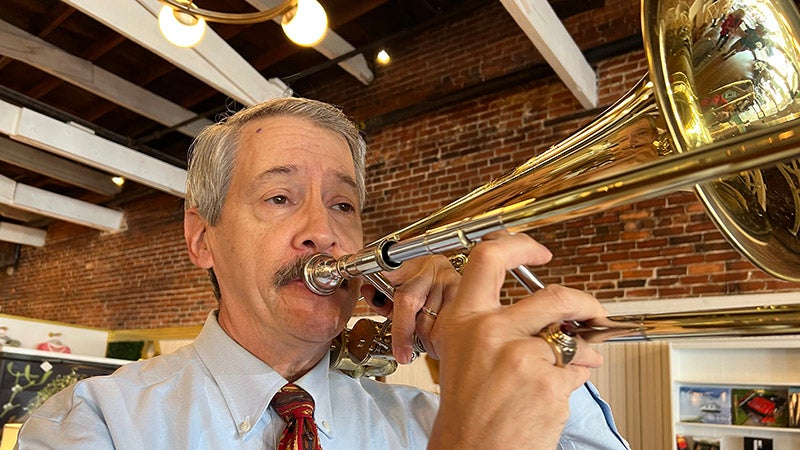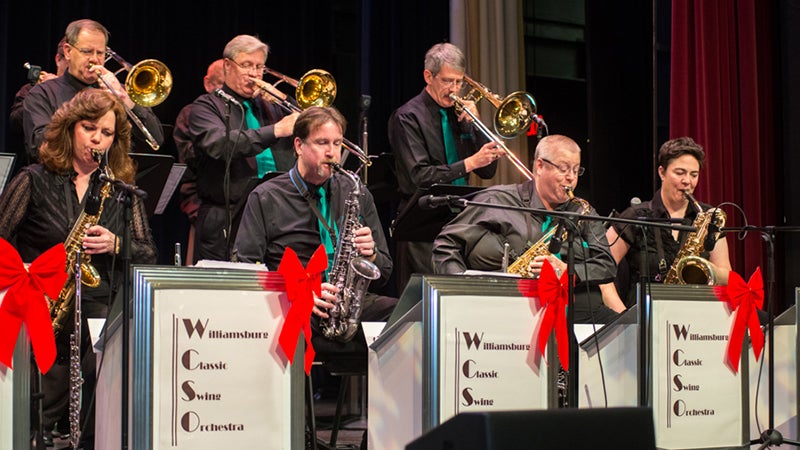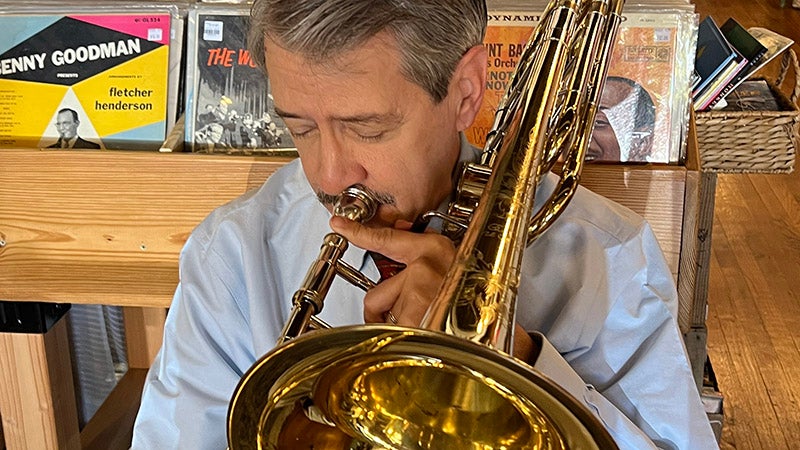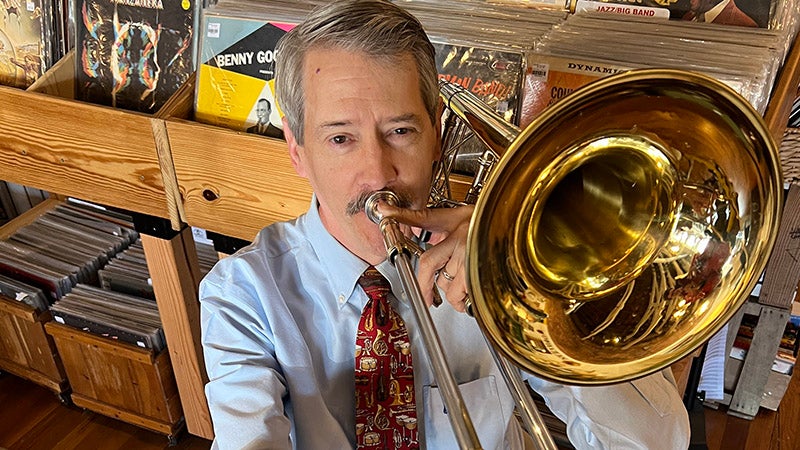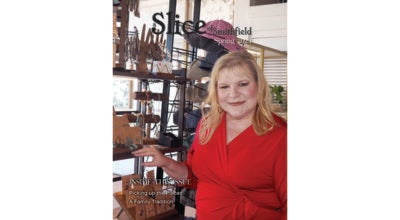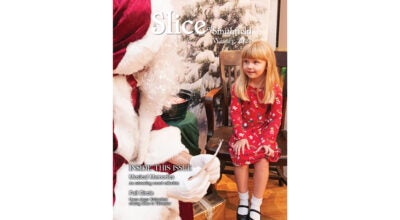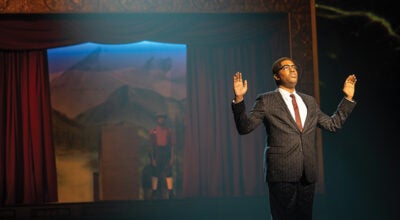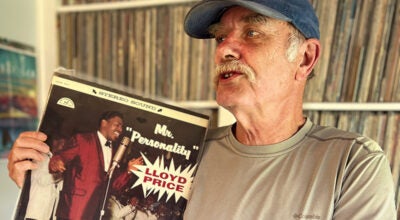The Music Man
Published 6:27 pm Tuesday, July 11, 2023
Dru Stowe keeps swing music humming in Smithfield
By Phyllis Speidell
Among the genres of popular music, swing is one of the most enduring. Popularized by the classic big bands of the 1930s and 1940s, swing lives on today with smaller ensembles as well.
The Williamsburg Classic Swing Orchestra, fronted by Smithfield music man Dru Stowe, brings swing to town frequently. Appreciative fans know that the music will wrap them in a nostalgic cloud of well-being – or at least set their feet tapping.
Bandleader Duke Ellington captured the growing popularity of swing music with his 1932 hit “If it Ain’t Got That Swing, It Don’t Mean a Thing.”
So, what is swing music? If the first few bars put you in the mood to dance to “One O’clock Jump” or “The Jersey Bounce” or glide around the floor to “Moonlight Serenade,” you’re likely listening to the infectious strains of swing.
Swing music evolved from jazz during the Depression years of the 1930s and exploded in popularity in the 1940s World War II era. The big dance bands – Glenn Miller, Stan Kenton, the Dorsey Brothers, Count Basie, Duke Ellington, Benny Goodman, Cal Calloway and more – spread the music via concerts, Hollywood musicals and jukeboxes. Those old enough, or lucky enough, to have grown up with swing playing from radios or 78 and 33 rpm records can still recognize their favorite numbers from the first few notes.
Jon Hartley, a local vintage record collector and dealer, commented on swing’s legacy: “We grew up listening to big band music as background for Bugs Bunny and other cartoons as well as the Disney animated movies of the 1950s. George Lucas even included a swing influenced piece, deliberately meant to reflect Benny Goodman’s ‘Sing, Sing, Sing,’ in the Star Wars cantina band scene. “
Stowe and the Williamsburg Classic Swing Orchestra focus on bringing the magic of swing to younger audiences as well as longtime fans who appreciate the sentimental journeys the music can reflect. As the band advertises, it is “Keeping the music of the swing era alive and kickin’.”
Stowe enjoys introducing high school music students to the challenge and fun of swing music. Spanning the generations, he also teaches an ElderHostel music history course titled “Life in the Pits.”
Music has been part of Stowe’s life since he was 12 and first picked up a trombone. He grew up in Belmont, North Carolina, a town that is much like Smithfield, he said, “except think cotton, not ham.”
He played with the Red Raiders band of Southpoint High School and continued his band experience with the Marching Virginians during his time at Virginia Tech. He credits the music with keeping him sane during his rigorous engineering studies.
In 1983, Stowe left Belmont to pursue a career in aerospace engineering with the Army aviation facility at Fort Eustis, where he focused on Black Hawk helicopters. When he traveled to Lynchburg for his best friend’s wedding, he met his future wife, Karen Stone. She was one of the five young professional violinists, the Stone Sisters, who played at the wedding.
The couple settled in Newport News, where, in 1988, he left engineering to launch Mursto Productions, a booking agency for musical groups and other entertainers. Both Stowes joined the Hotel Paradise Roof Garden Orchestra when it debuted in 1992, playing music from the 1920s and 1930s with Dru on the tuba and Karen as first violin.
When friends who performed regularly at Busch Gardens mentioned a scarcity of musicians, Dru signed on as a part-time musician, starting in the park’s Italian section. For 28 years he played in all of the park’s different sections and became the music supervisor and special events coordinator.
“I felt like Johnny Carson,” Stowe recalls.
One downside to a Busch Gardens musician’s job is the monotony of playing the same program five or more times a day.
“It can become automatic – like you are on automatic pilot,” he said.
To break the routine – and enrich their skills – the musicians met after hours to read and practice big band charts that were more challenging and written for a larger ensemble. Their practices went so well that they asked permission to hold a big band-style concert for all of the employees. The evening of the concert, an Anheuser-Busch executive visiting from St. Louis saw the exuberant reaction of the audience and invited the group to perform their swing music regularly at the park on Friday and Saturday nights.
For 20 years the big band concerts continued with a heavy dose of swing – until management canceled the program. Undeterred, the musicians formed the Williamsburg Classic Swing Orchestra. While playing brass, Stowe also fronts the orchestra as it continues to keep swing alive, performing across the region.
Stowe also enjoys other genres, playing with Legacy Motown Revues as well as the Tommy Dorsey and Irving Berlin orchestras when they appear locally. You also may have seen him at Harbor Park with the Tomcats playing Dixieland at Norfolk Tides baseball games.
Stowe, active in the Isle of Wight Arts League, serves as executive director of the Sundays at 4 concert series, which includes an annual Terrific Teens Talent concert showcasing local teenage musicians. He also leads the Second Ending Brass Quintet.
The Stowes have two children, and both have inherited their parents’ musical talent. Nathan Stowe is a gemologist in San Diego and sings in a United Methodist Church. Their daughter, Virginia, lives in Elizabeth City and plays both the trumpet and the violin. She and her husband have a daughter and another baby on the way.
To this day, Stowe has no regrets about leaving aerospace to pursue music in a myriad of ways. His varied musical experiences sparked an interest in antique musical instruments and led to his collection of more than 200 instruments covering 400 years from pre-Shakespeare to swing.
The Stowes share a future goal of opening a music museum and concert hall on the nine acres they bought when they moved from Newport News to Smithfield. You can be sure that the 8,000-square-foot Tudor Castle they are building will include acoustics designed to handle any music genre and draw music-loving visitors to the Smithfield area.
A true music man, Stowe was delighted to see completion of the new Main Street Square stage. The Williamsburg Classic Swing Orchestra plays there occasionally, and now, Stowe said, “When it’s done and we play there, all the musicians will now fit easily on the stage.”


